Finland is a largely uninhabited and protected wilderness. Besides the 188,000 lakes more than 75 % of the land is covered with forests. Respect for the surroundings, consequently sustainability, is a second nature to Finns as I experienced it at first-hand when I lived there. It not only involves their food, energy and waste management, but also their well-crafted thus durable, simple yet elegant design that has a timeless quality and is well used in everyday life.
These principles are to be found in their architecture as well. Not long ago I visited the ecumenical Kamppi Chapel of Silence, designed by architects Mikko Summanen, Niko Sirola and Kimmo Lintula in 2012. It won the International Architecture Award and keeps attracting many visitors.
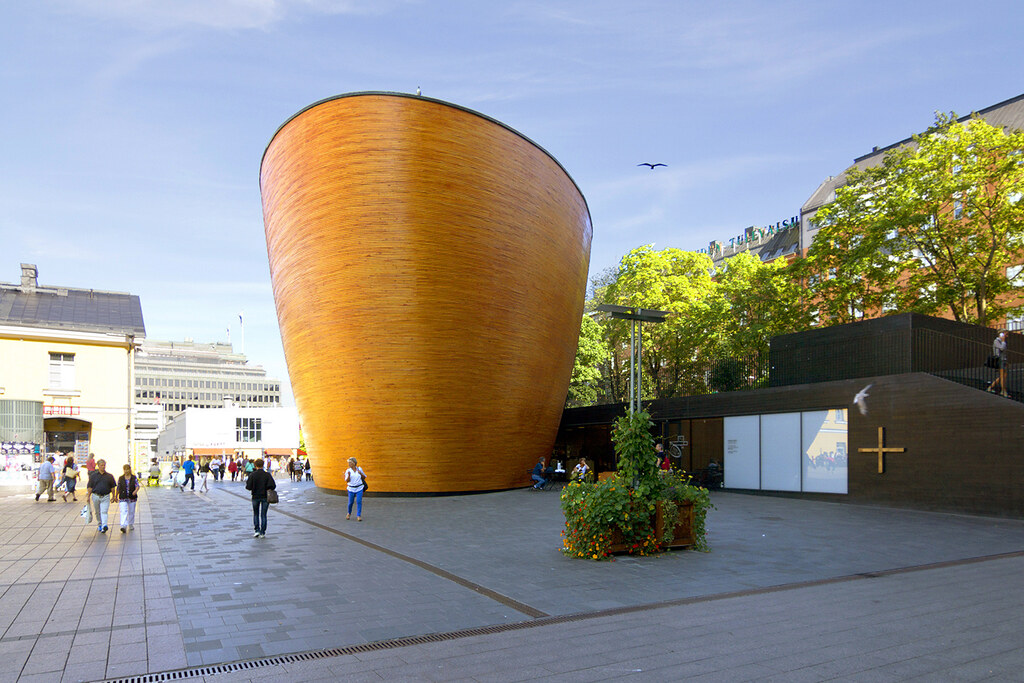
This small sanctuary is located in one of the busiest places of the city center of Helsinki. The soft curvy shape is very different from its urban surroundings. It is a small, egglike construction, not much of a chapel kind of a thing at first sight. More like a Noah’s ark or a small wooden spaceship. It is certainly different and fascinating. The outer shell is made from spruce boards seamlessly connected together with horizontal joints. The structure is treated with special wax for protection.
There is an adjacent building and you enter the chapel via its glazed doors. Inside awaits a very quiet and inspiring sacral space with curved walls constructed from oiled alder planks (see the top picture). The room is simple and surprising, furnished with a few wooden benches, a wooden altar, a silver cross and a bowl. The closed but friendly space, the smooth walls and the natural light through the skylight at the ceiling’s edge, grant a ‘safe and hidden’ sensation to the visitor. As if you are at the center of something very special. A heart or a womb, in any case an embrace-like experience. Despite the lack of windows, it is not claustrophobic at all. The walls feel organic and strangely cosmic too. The impression created by the wooden planks suggests fast movement. This is what you see in movies when the makers imagine one travelling at the speed of light in an interplanetary space. The chapel seems to indicate the idea of a home in the universe. The silence and seclusion in the midst of the buzzing city offer an opportunity to calm down and pray or meditate.
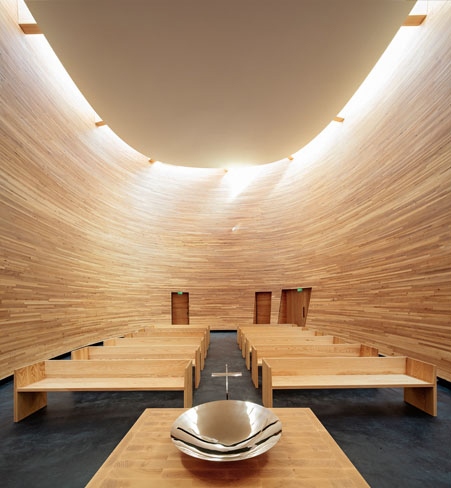 |
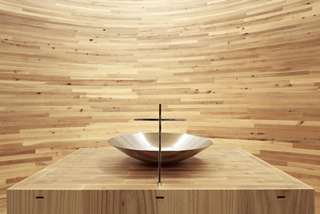 |
Serene simplicity close to nature in modern architecture is not new in Helsinki. An earlier and very well-known pièce de résistance in modern church architecture is the Temppeliaukio Church designed by Timo and Tuomo Suomalainen in 1969 just 600 meters further north-west from the Kamppi Chapel. The Rock Church is one of the best-known Lutheran churches of the country, where about seventy percent of the population of 5,5 million belongs to this denomination.
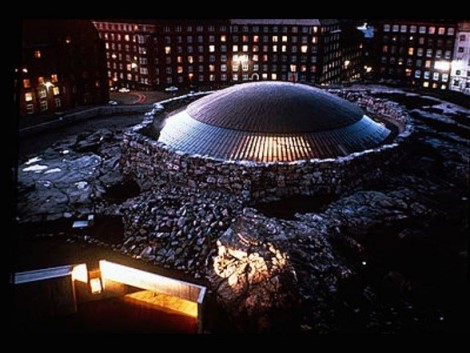 |
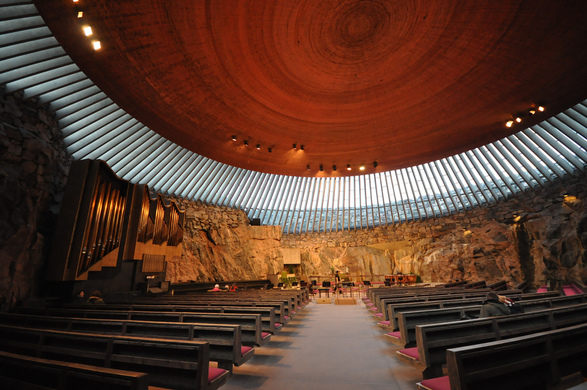 |
As it is hewn into a huge solid rock, the experience is very different in this space. Yet it has a similar ‘hidden and safe’ touch to it. When it was built people discussed its spaceship-like design – not farfetched, at least compared to the ways we imagine such constructions.
The vast cave is covered with a 24-meter diameter glass and copper dome. Natural light flows through a skylight surrounding the middle of the dome. It has its own organ, but no church bells here either. A special composition is recorded and played through loudspeakers outside, when required. Thanks to the rough rock walls, the acoustics happen to be exceptional inside.
Both these modern sacred spaces are born from the locals’ intimate relationship with nature. Both these structures seem otherworldly at first glance yet are obviously very fitting to their larger context. They seem strangely ancient and modern at the same time. They resonate with spiritual and traditional connotations as well as with Finland’s modern sustainable design.
***
This blog was published earlier as a visual mediation on ArtWay on 20 October 2019.

